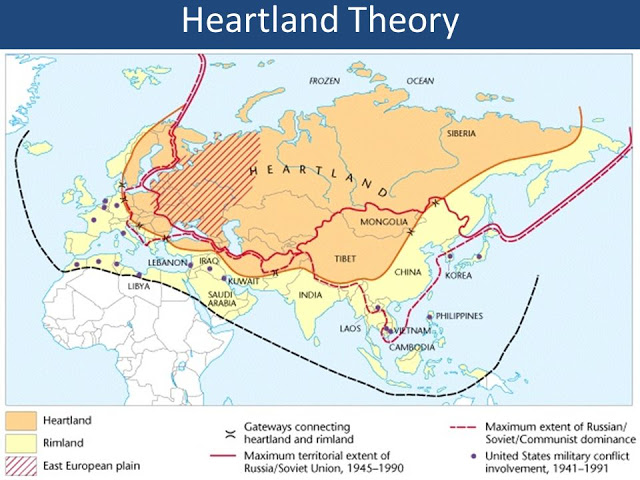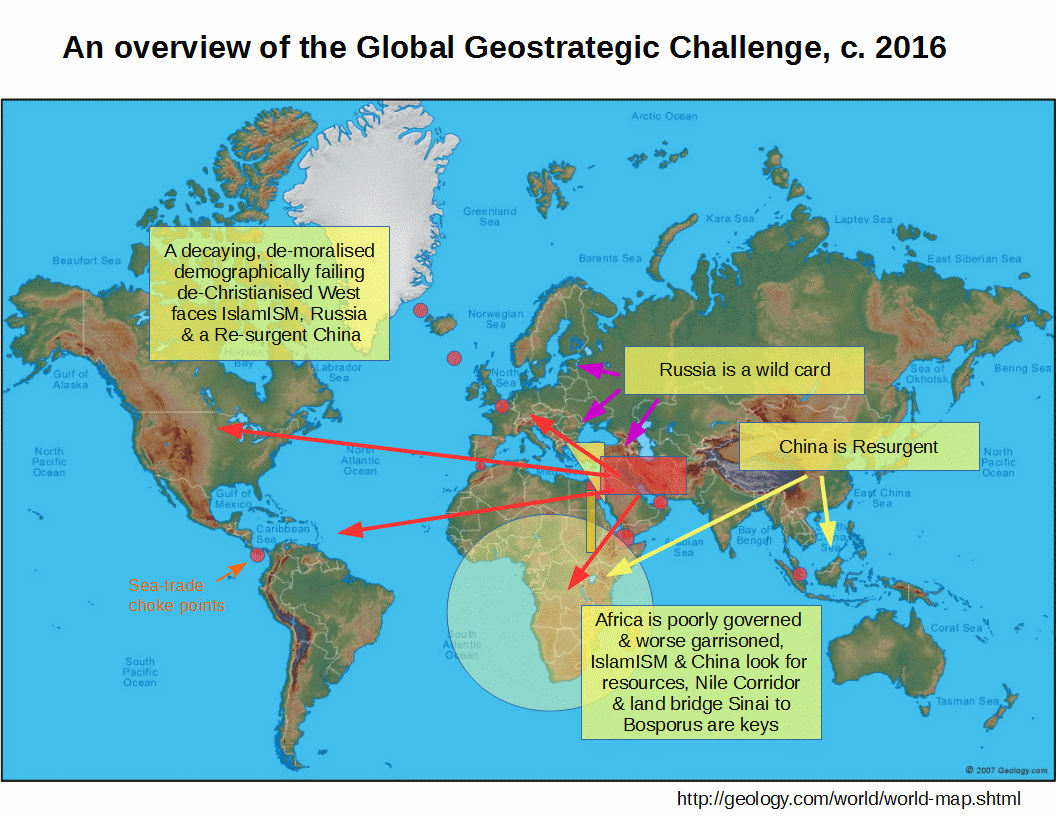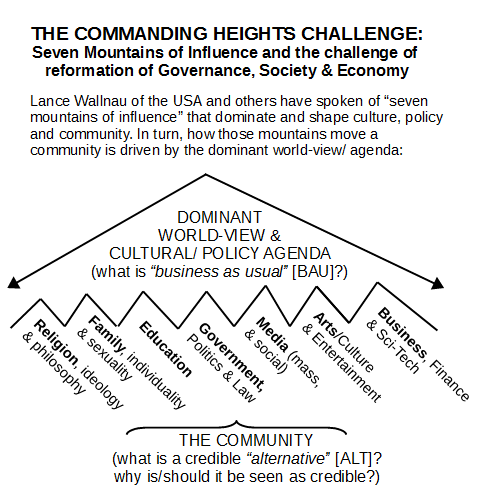
. . . which was decisive, not only for the Second World War but for the Cold War. For a dominant, totalitarian state in control of Mackinder’s Heartland and ranging to the Atlantic would have sobering global geostrategic consequences.
Summary of the thesis:
“Who rules East Europe commands the Heartland;who rules the Heartland commands the World-Island;who rules the World-Island commands the world.”(Mackinder, Democratic Ideals and Reality, p. 150)“The Geographical Pivot of History” was an article submitted by Halford John Mackinder in 1904 to that advanced his “Heartland Theory”
Let us never forget the sacrifice that restored a bastion of freedom in Western Europe, which ultimately prevailed. END
PS: I would love to see a restored easy way to do embedded vids for UD.
PPS: Let me add a sketch of my geostrategic assessment c 2016, which is still essentially valid — and sobering:
PPPS: It looks like we must also ponder the seven mountains, commanding heights of a culture picture:

